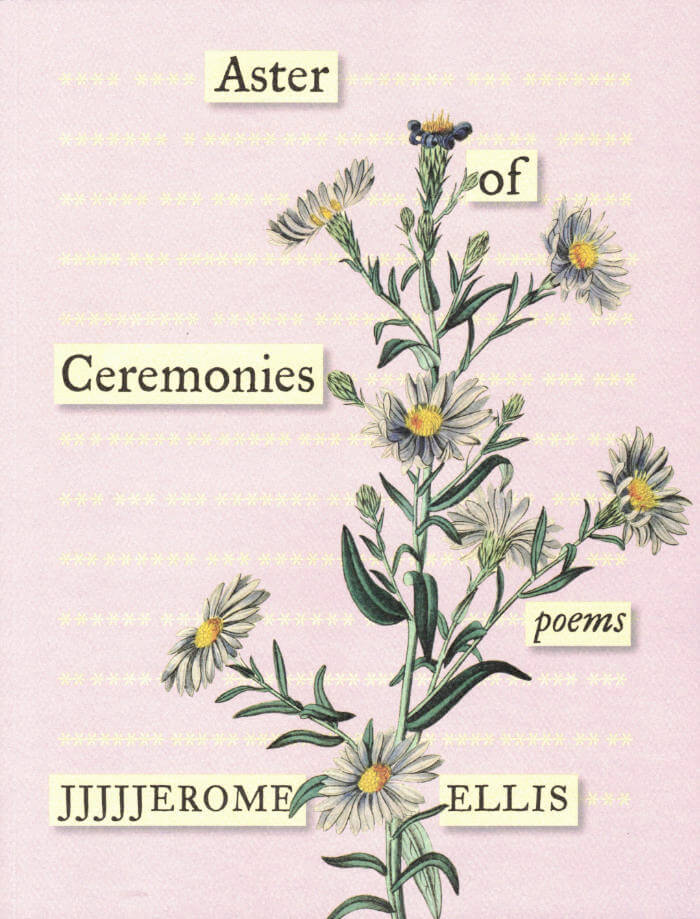JJJJJerome Ellis
Aster of Ceremonies asks what rites we need now and how poetry, astir in the asters, can help them along. What is the relationship between fleeing and feeling? How can the voices of those who came before—and the stutters that leaven those voices—carry into our present moment, mingling with our own? When Ellis writes, "Bring me the stolen will / Bring me the stolen well," his voice is a conduit, his "me" is many. Through the grateful invocations of ancestors, Hannah, Mariah, Kit, Jan, and others, and their songs, he rewrites history, creating a world that blooms backward, reimagining what it means for Black and disabled people to have taken, and to continue to take, their freedom.
A polyphonic new entry in Multiverse—a literary series written and curated by the neurodivergent—JJJJJerome Ellis's Aster of Ceremonies beautifully extends the vision of his debut book and album, The Clearing, a "lyrical celebration of and inquiry into the intersections of blackness, music, and disabled speech" (Claudia Rankine).
JJJJJerome Ellis is the author of Aster of Ceremonies. He is an animal, stutterer, and artist. He is also the author and composer of The Clearing, an audio-textual project that investigates how stuttering, blackness, and music can be practices of refusal against hegemonic governance of time, speech, and encounter. His work has been presented by the Lincoln Center, the Poetry Project, MASS MoCA, REDCAT, Arraymusic, and the Center for African American Poetry and Poetics, among others. He lives in Tidewater, Virginia, where he was raised by Jamaican and Grenadian immigrants.


